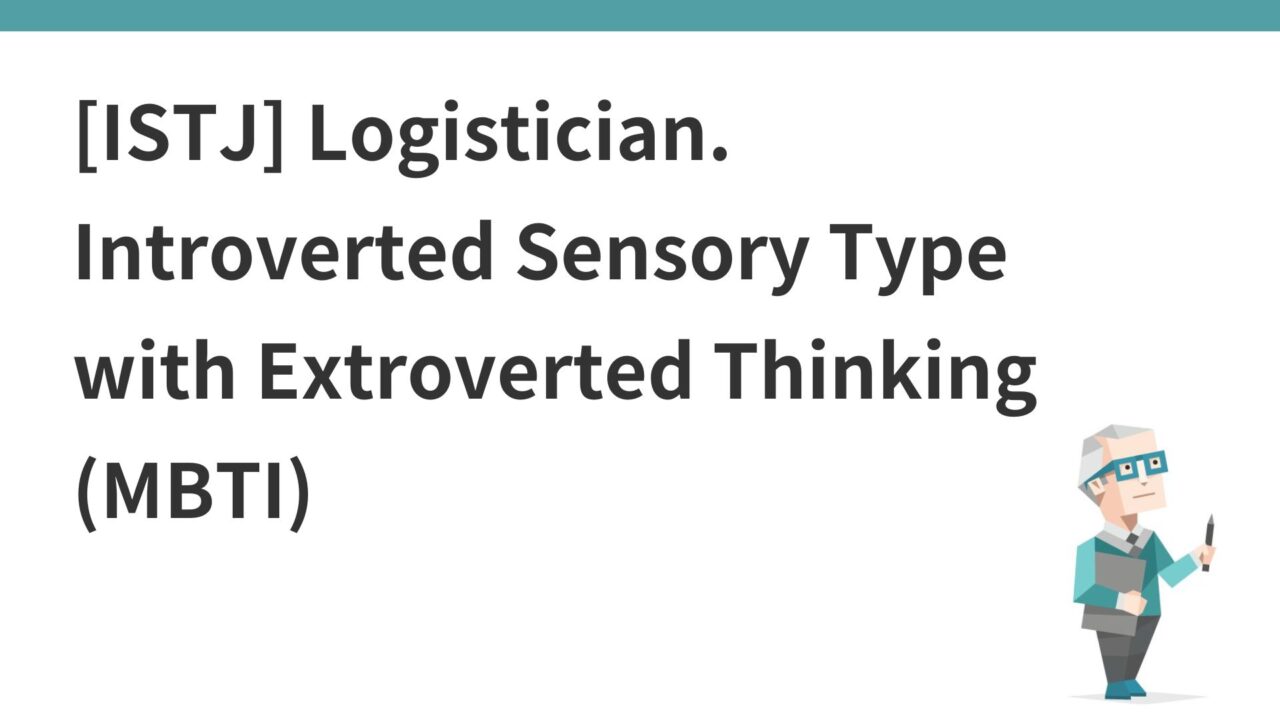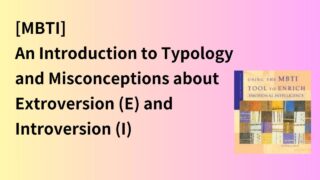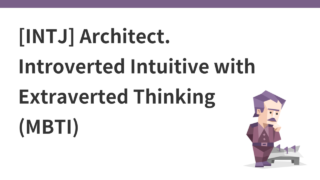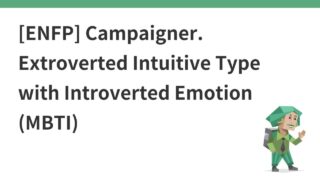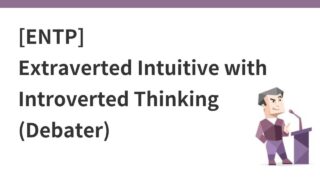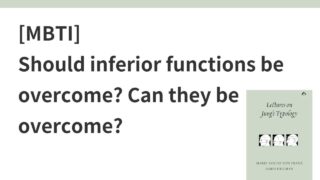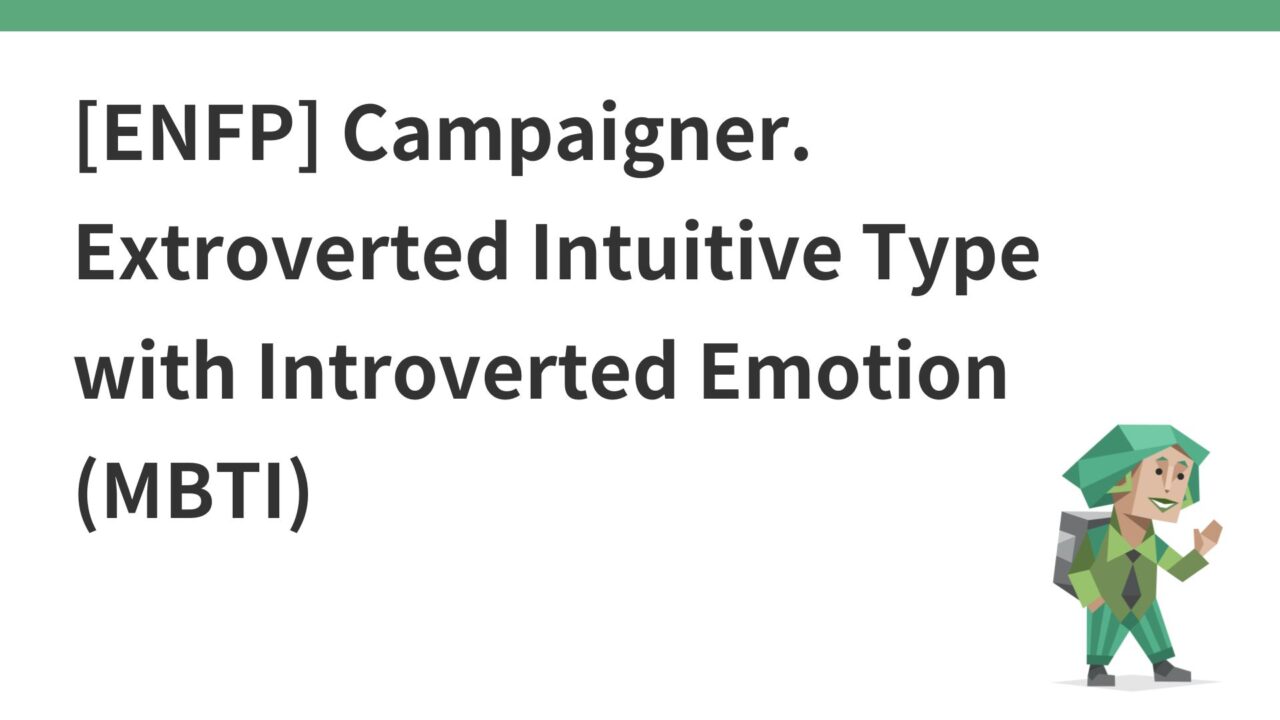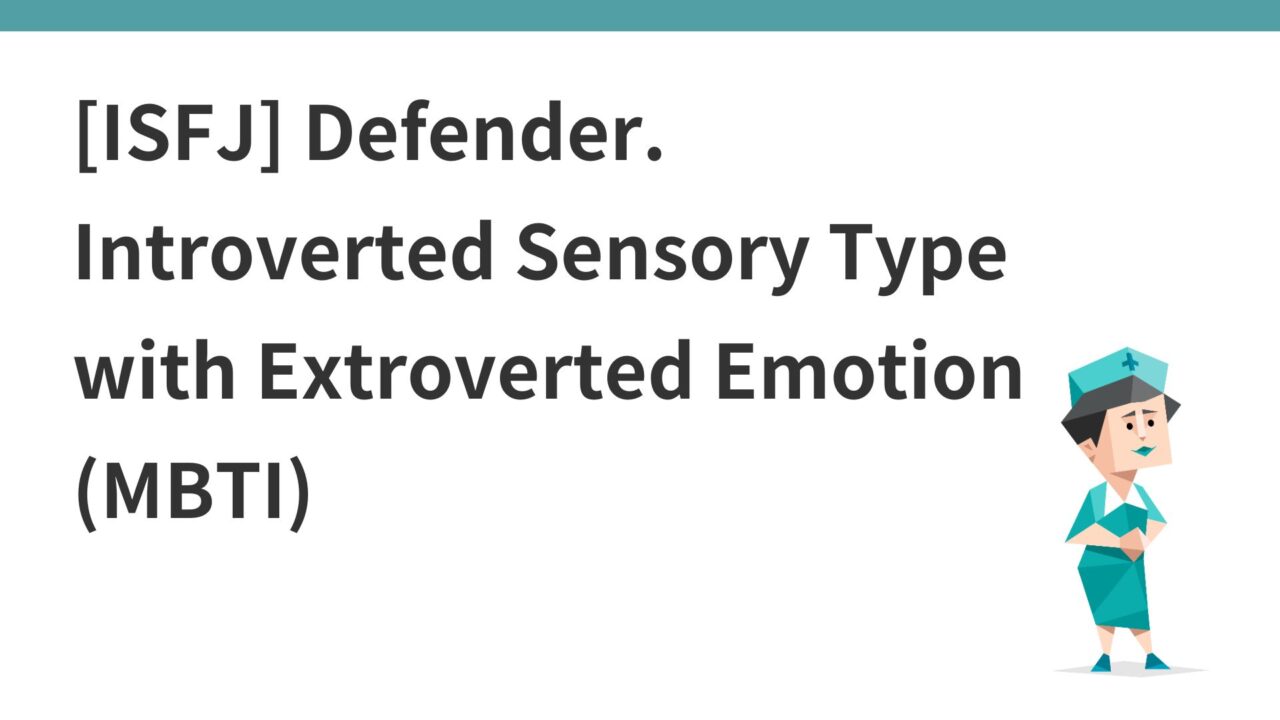- Introduction.
- Public’s impression of ISTJ
- Si-Te: introverted sensory type with extroverted thinking
- Characteristics and decision-making process for primary and auxiliary functions
- Difference between ISTJ and INTJ
- Impression to the surroundings
- To strengthen the extroverted intuition (Ne) of the inferior function
- Communication Features
- Reactions during stress and points for improvement
Introduction.
I will summarize the following perspectives on each MBTI personality type.
- Public Impressions
- Characteristics of the primary and auxiliary functions and the decision-making process
- Impression to the surroundings
- Inferior Functions and How to Enhance Inferior Functions
- Communication Features
- Reactions during stress and points for improvement
In this issue, we discuss the ISTJ.
Public’s impression of ISTJ
If you Google ISTJ, you will find related searches such as “ISTJ how to get angry,” “ISTJ unattractive,” “ISTJ serious,” and “ISTJ rules.
Described as “administrators,” celebrities include Warren Buffett, George Washington, Napoleon, and Helen Keller.
Si-Te: introverted sensory type with extroverted thinking
Cognitive functions of ISTJs are in order of development as follows
- Primary function (the function you are most aware of): introverted sensation (Si)
- Auxiliary functions (functions that function well but are difficult to recognize in oneself): extroverted thinking (Te)
- Third function: introverted affect (Fi)
- Inferior function: extroverted intuition (Ne)
The following is a brief description of how each cognitive function affects an individual’s perception and behavior
| cognitive function | Inward (i) | Outgoing (e) |
| Intuition (N) | Pattern recognition – inner insights and future predictions | Explore new possibilities – ideas and abstract concepts |
| Thinking (T) | Logical analysis – building internal theories and organizing thoughts | Objective judgment – decision making for efficiency and fairness |
| Emotion (F) | Deep empathy – a deep understanding of personal feelings and values | Social harmony – forming emotional connections with others |
| Sensation (S) | Details of reality – reflection of inner concrete memories and experiences | Actual experience – direct interaction and action with the outside world |
Si-Te: Make efficient and logical decisions based on past experience and facts.
Characteristics and decision-making process for primary and auxiliary functions
Introverted sensation (Si): focus on reality
The introverted sense, a primary function of ISTJs, is adept at understanding and evaluating the real world based on past experiences and detailed facts; ISTJs value consistency and order and tend to adhere to an existing framework. In everyday life, they are characterized by planning and attentiveness and often take a reliable, practical approach.
Extroverted thinking (Te): objective judgment
Extroverted thinking, the second function of ISTJs, pursues efficiency and logic; ISTJs are good at developing structured procedures and plans to achieve their goals. In problem-solving, they are also expected to make decisions and implement them based on data and evidence. This function plays an important role in the ISTJ’s role at work and at home.
The Si-Ne combination is realistic and logical and therefore has the following characteristics in terms of flexibility
- They are also physically fit and prefer orderly consistency.
- Feeling efficient and enjoying getting things done
- Sometimes I can’t stand ambiguity or making changes without a detailed plan.
Difference between ISTJ and INTJ
Both ISTJs and INTJs have external thinking (Te) as an auxiliary function, but their primary functions are different, resulting in differences in cognitive function combinations and behavioral priorities.
ISTJs have introverted sensation (Si) as their primary function, so they see things from a concrete, practical perspective, whereas INTJs have introverted intuition (Ni) as their primary function, so they see things from an abstract, future-oriented perspective.
Both have extroverted thinking (Te), so they make logical and efficient decisions, but they differ in that the information on which they base their decisions is past experience for ISTJs and future possibilities for INTJs.
For example, when a company is considering implementing a new project management system, ISTJ thoroughly researches data from the system currently in use and past implementation experiences and lists specific benefits and risks based on past successes and failures. Then, a specific migration plan is developed and detailed steps and procedures are set up to minimize risks. Decisions are made with emphasis on how well the new system fits into current business processes and whether or not it is practical.
On the other hand, INTJs gather information on technological evolution and market trends to examine future possibilities. They anticipate future changes in business processes and markets, consider how new systems will contribute to their long-term vision, propose ideas based on abstract concepts and future scenarios, and build strategies to transform the entire organization. Take a forward-looking approach to future possibilities.
Impression to the surroundings
- Reliable: ISTJs keep their promises and have a strong sense of responsibility, so they are easily recognized as trustworthy
- Planned and systematic: ISTJs plan things out in detail, giving the impression of order and structure. Show attention to even the smallest detail, and show attention to detail.
- Conservative and cautious: Tend to respect past experience and existing frameworks, and value stability and tradition. They act cautiously to minimize risk and proceed with caution.
- Reserved and introverted: reserved in social settings, often giving the impression of being introverted.
- Consistent: ISTJs exhibit consistent attitudes and behaviors and are seen as predictable and stable
- Inflexible: ISTJs tend to adhere to a plan or method once established and may have difficulty responding flexibly to new situations or changes. They may be conservative about new ideas or inexperienced approaches and slow to accept change.
My impression is that “serious and honest” is the type of person for whom the words “serious and honest” are most appropriate. If all N family members are involved, the organization tends to want to do only new things, and accounting and back-office work tends to be spread thin, and no one wants to do it. In such cases, it is reassuring to have ISTJ.
Also, since he is a T-type, I have the image of him quietly handling the work in front of him without being too distracted by his own or other people’s emotions. Also, since he is not an ESTJ, he seems to quietly do the work that can be completed by one person.
This is my personal bias, but I think there is a high percentage of spectacle wearers. Or rather, they look good in glasses.
To strengthen the extroverted intuition (Ne) of the inferior function
ISTJs have relatively the least developed extroverted intuition (Ne), a recessive function.
This function is the ability to explore new ideas and possibilities and to think outside the existing framework; for ISTJs, this function is underdeveloped and can cause stress and anxiety.
Be open to new experiences
Exercise extroverted intuition by stepping out of the familiar by visiting new places and trying unknown activities. Also, stimulate Ne by exposing yourself to a world beyond reality through books, movies, games, etc. Don’t think too much, just do it right away!
Incorporate creative activities
Incorporating creative activities such as drawing, writing, and making music into one’s daily routine can help activate the Ne
Attempt to brainstorm
Allow time for unconstrained idea generation and practice expanding your thinking freely. This helps explore new perspectives and possibilities. Encourage the development of Ne by interacting with people with different opinions and perspectives and trying to understand their ideas. Involve 2-3 more people than usual in the problem-solving process, for example.
What we need to learn to respect different types
Incidentally, the types with this extroverted intuition (Ne) most developed are ENFPs and ENTPs; ENFPs and ENTPs are good at exploring new ideas and possibilities, and always feel like their antennae are open to the outside world.
From the ISTJ’s point of view, “Aren’t ENFPs and ENTPs always thinking of new and fluffy things and being too paranoid? Let’s do the job at hand first!” However, the ENFPs and ENTPs’ willingness to explore new ideas and possibilities may help the ISTJ to find a balance and may be helpful in many ways.
Those who ask too many questions and focus on values need to learn that they are providing a framework and analysis worth listening to.
Communication Features
Direct and clear
- The ISTJ emphasizes conveying accurate and specific information and avoids ambiguous expressions.
- Strive to state what you want to say clearly and avoid misunderstandings.
Logical and factual
- They prefer to communicate based on logic and facts rather than emotions.
- Tendency to present data and evidence to advance the discussion.
Reserved and introverted
- Because of his introverted nature, the ISTJ avoids speaking in front of large groups and only speaks up when necessary.
- He often observes situations rather than asserting his thoughts and opinions.
Reliability and Consistency
- Build trust by taking responsibility for your words and delivering a consistent message.
- Maintain trust by keeping your word and acting according to expectations.
Conservative and tradition-oriented
- Prefers to speak from past experience and existing frameworks rather than new ideas.
- Respect traditions and existing rules, and respond cautiously to change.
The ISTJ has a reliable and consistent communication style.
Reactions during stress and points for improvement
When ISTJs are exposed to stress, their primary function, introverted sensation (Si), may be overexpressed or an inferior function, and extroverted intuition (Ne), which is usually underused, may surface, causing a series of typical reactions.
When I see others seem too emotional, too lazy, too aimless, or pushing for change (seemingly) without purpose, I feel stressed.
Reactions under stress
- Stress due to an excessive sense of obligation: Because ISTJs have very high standards and responsibility for themselves and their work, they have a strong sense of obligation, and while they try to meet the tasks and expectations they are entrusted with, they tend to keep the pressure and stress inside. A slight delay or mistake may cause them to think, “I may not be meeting expectations” or “I may not be fulfilling my responsibilities.
- Excessive fixation on details: the primary function, introverted sensation (Si), is over-expressed and too fixated on trivial details. Overreacting to small mistakes or imperfections inhibits overall progress.
- Compulsive maintenance of routines: compulsive attempts to maintain existing routines and procedures, strong rejection of new methods and changes, and reduced adaptability.
- Extroverted intuition ( Ne) out of control: Extroverted intuition (Ne), an inferior function that is not usually used much, surfaces and overthinks extreme possibilities and scenarios. Worst-case scenarios and irrational fears plague us and increase our anxiety.
- Critical and aggressive attitude: may become critical and aggressive toward others’ mistakes and inefficiencies. Difficulty cooperating and communicating with others.
- Lack of decisiveness: excessive information gathering and fixation on details leads to poor decision-making and indecision. Inability to act at the right time.
Key Points for Improvement
- Have time to relax: When feeling stressed, set aside time to relax and try not to obsess over too many details. Try relaxation techniques such as walking or meditation.
- Encourage flexible thinking: Avoid excessive adherence to details by trying new perspectives and approaches. Broaden your perspective by incorporating the opinions of others.
- Have a positive perspective: Do not get caught up in extreme possibilities or worst-case scenarios. Look at positive daily events and be grateful for them.
- Find balance: strike a balance between work and personal life and avoid excessive stress. Recognize your limitations and try to get some rest.
